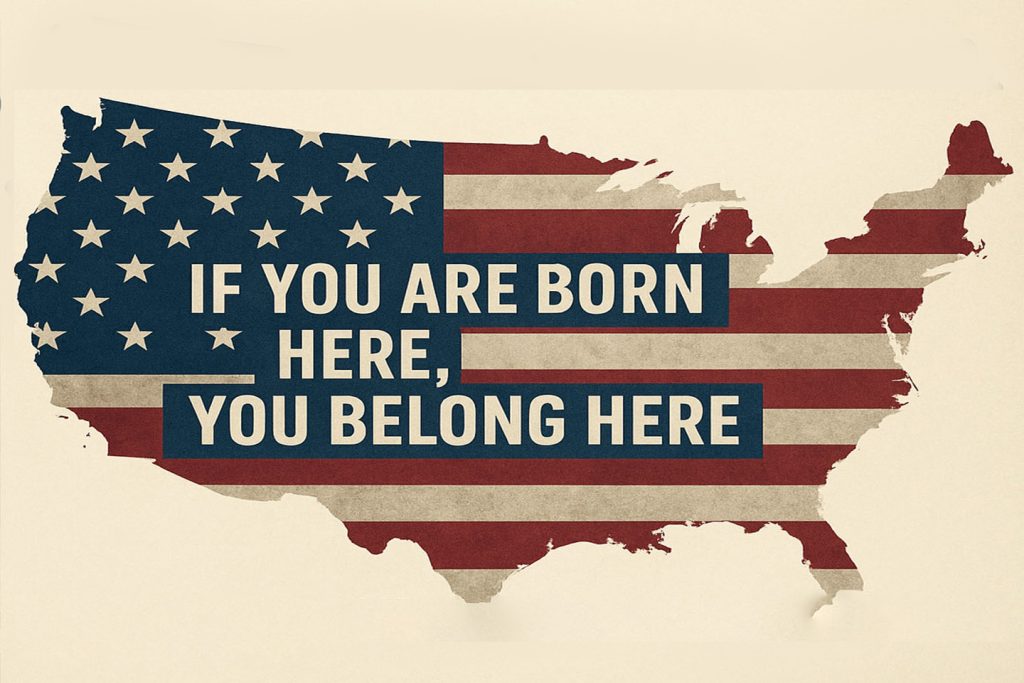
Birthright citizenship—the principle that anyone born on U.S. soil is automatically a citizen—stems from the 14th Amendment to the U.S. Constitution, ratified in 1868. After the Civil War, Congress sought to ensure that formerly enslaved people and their children were recognized as full citizens. The Amendment declared:
“All persons born or naturalized in the United States, and subject to the jurisdiction thereof, are citizens of the United States and of the state wherein they reside.”
This landmark provision was a direct rejection of the infamous Dred Scott v. Sandford decision of 1857, which had denied citizenship to African Americans. The 14th Amendment enshrined equality under the law and created a clear, universal rule for citizenship: if you are born here, you belong here.
Why Birthright Citizenship Should Be Preserved
- Clarity and Stability: Birthright citizenship provides an unambiguous standard. It avoids generations of people living in legal limbo and ensures that citizenship is not determined by shifting political winds or bureaucratic discretion.
- Equality of Opportunity: It reinforces the American ideal that everyone born here—regardless of race, ethnicity, or parents’ status—has an equal claim to the rights and responsibilities of citizenship.
- Integration and Belonging: Birthright citizenship fosters social cohesion by ensuring that children born in the U.S. grow up fully integrated into the nation’s civic fabric, rather than marginalized as outsiders.
- Historical Continuity: For more than 150 years, this principle has defined what it means to be American. Undoing it would undermine one of the cornerstones of our national identity.
The Consequences of Abolishing Birthright Citizenship
Ending birthright citizenship would not simply be a policy shift—it would fundamentally alter the structure of American society. Potential consequences include:
- Mass Statelessness: Children born in the U.S. to undocumented parents could become stateless if they are not automatically recognized as citizens by any country. This would create a permanent underclass with no legal protections.
- Generational Inequality: Without birthright citizenship, families could remain trapped in cycles of exclusion. Children and grandchildren of immigrants could grow up in the U.S. but never be legally recognized as Americans.
- Administrative Chaos: Abolishing the rule would require the government to verify parental immigration status at every birth. Hospitals and state agencies would be pulled into immigration enforcement, leading to errors, discrimination, and enormous costs.
- Erosion of Civil Rights: The precedent of stripping away such a fundamental constitutional guarantee could set the stage for weakening other rights enshrined in the Constitution.
The Broader Impact on Americans
Abolishing birthright citizenship would not only affect immigrant families—it would touch every American:
- Constitutional Integrity: Rolling back the 14th Amendment would weaken confidence in the permanence of constitutional protections.
- National Identity: The United States has long been a nation defined not by bloodlines but by shared values and geography. Without birthright citizenship, the country risks adopting exclusionary policies that resemble the very systems it once rejected.
- Economic and Social Stability: Millions of non-citizens living and working in the U.S. without a pathway to citizenship would harm labor markets, increase inequality, and destabilize communities.
Conclusion
Birthright citizenship is more than a legal rule—it is a moral and civic principle that defines the United States as a nation of opportunity, inclusion, and equality. It reflects the promise that anyone born here can claim the title of “American.”
Abolishing this principle would fracture the foundation of constitutional rights, create generational inequities, and undermine national unity. Preserving birthright citizenship means preserving one of the most enduring and democratic values in American history.

